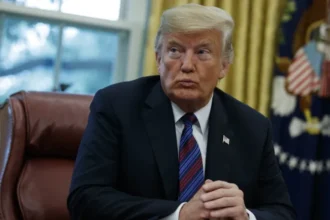A wave of U.S. government spending cuts under former President Donald Trump has triggered a loss of approximately R18 billion in funding for entrepreneurs across six African countries, sparking fears of stalled innovation and disrupted startup ecosystems.
According to sources familiar with the matter, the lost funding had previously fueled enterprise development, startup growth, and capacity-building initiatives aimed at empowering local entrepreneurs. The sudden cut is seen as a direct consequence of shifting U.S. foreign aid priorities during the Trump administration.
Who Made the Cuts?
The funding reductions were orchestrated by the Department of Government Efficiency (DOGE), a relatively new federal agency charged with auditing and trimming U.S. expenditure. The agency, led by tech magnate Elon Musk, reportedly took a hard stance on foreign aid, emphasizing “domestic reinvestment” and “accountability in international spending.”
While DOGE’s mandate was framed around optimizing federal outlays, critics argue that the agency’s approach lacked transparency and failed to consider the human cost of aid withdrawal in developing economies.
Countries Affected & Consequences
The six affected African nations have not been publicly named yet, but insiders say the majority are emerging markets with thriving entrepreneurial hubs. These countries had received targeted aid packages under U.S.-Africa development frameworks designed to:
- Support tech incubators
- Fund small and medium enterprises (SMEs)
- Provide training and mentorship to young entrepreneurs
- Encourage women-led business initiatives
The withdrawal of nearly R18 billion from these efforts threatens to undo years of progress, with many startups now scrambling to replace lost capital.
Broader Implications
Analysts warn that the aid cuts could lead to:
- Widespread job losses in startup sectors
- Decreased investor confidence in African innovation
- A slowdown in tech adoption and digitization efforts
- A potential increase in brain drain as entrepreneurs seek opportunities abroad
“This isn’t just about money,” said one development expert based in Nairobi. “It’s about momentum. Africa’s innovation economy was just hitting its stride, and this rug-pull could cost us a decade.”
A Legacy of Retrenchment
Trump’s “America First” policy was often marked by skepticism toward foreign aid, and this latest funding pullback is seen by many as part of a broader retreat from global development responsibilities. By contrast, previous administrations—Republican and Democrat alike—had consistently supported U.S.-Africa partnerships in entrepreneurship, healthcare, and education.
Observers say the political nature of the cuts is especially frustrating, as the targeted programs were widely seen as nonpartisan wins that benefited both American soft power and African economic growth.
What’s Next?
Entrepreneurs in the affected nations are now exploring alternative funding routes, including:
- EU development grants
- Private equity from China and India
- Crowdfunding and diaspora investments
But replacing nearly R18 billion in strategic aid won’t be easy. Many are calling on the current U.S. administration to reassess and restore these development channels before long-term damage takes root.
Conclusion:
The massive U.S. aid cut is more than a budget adjustment—it’s a major blow to Africa’s innovation frontier. As local entrepreneurs confront this new reality, global attention is turning toward the consequences of policy shifts made oceans away—and the lives they reshape in their wake.












